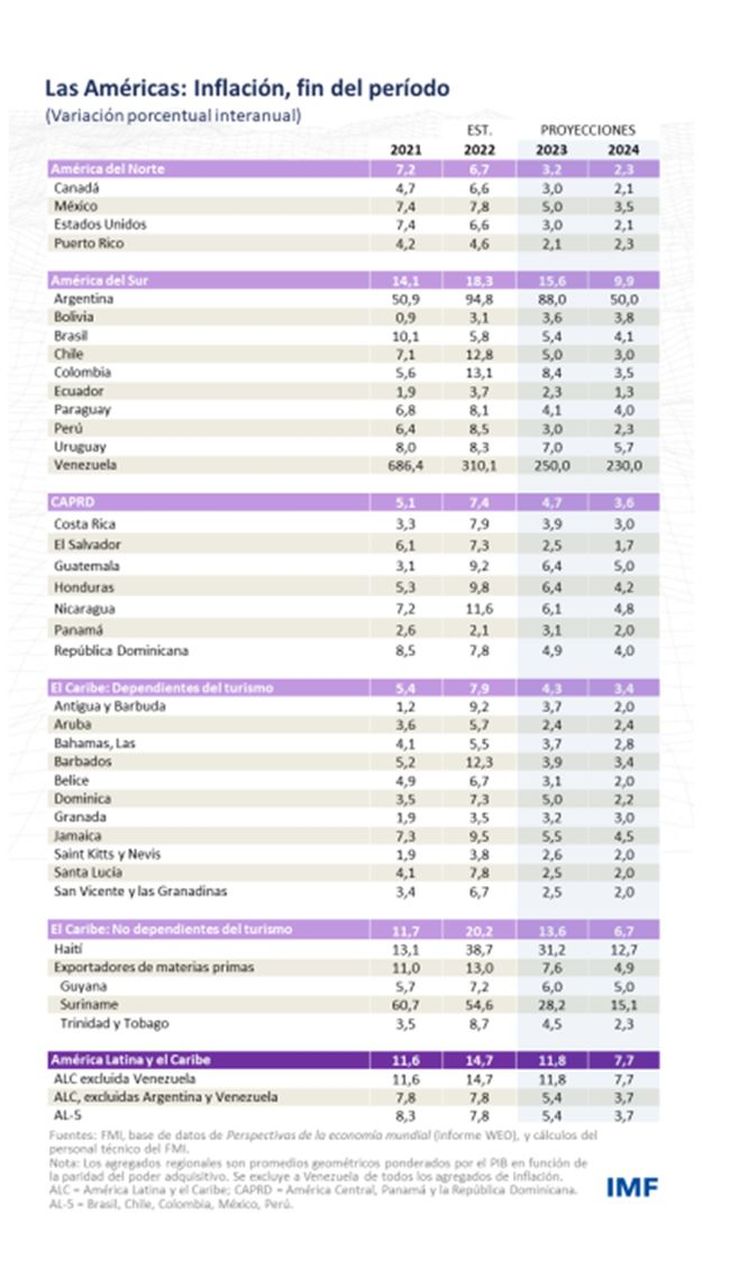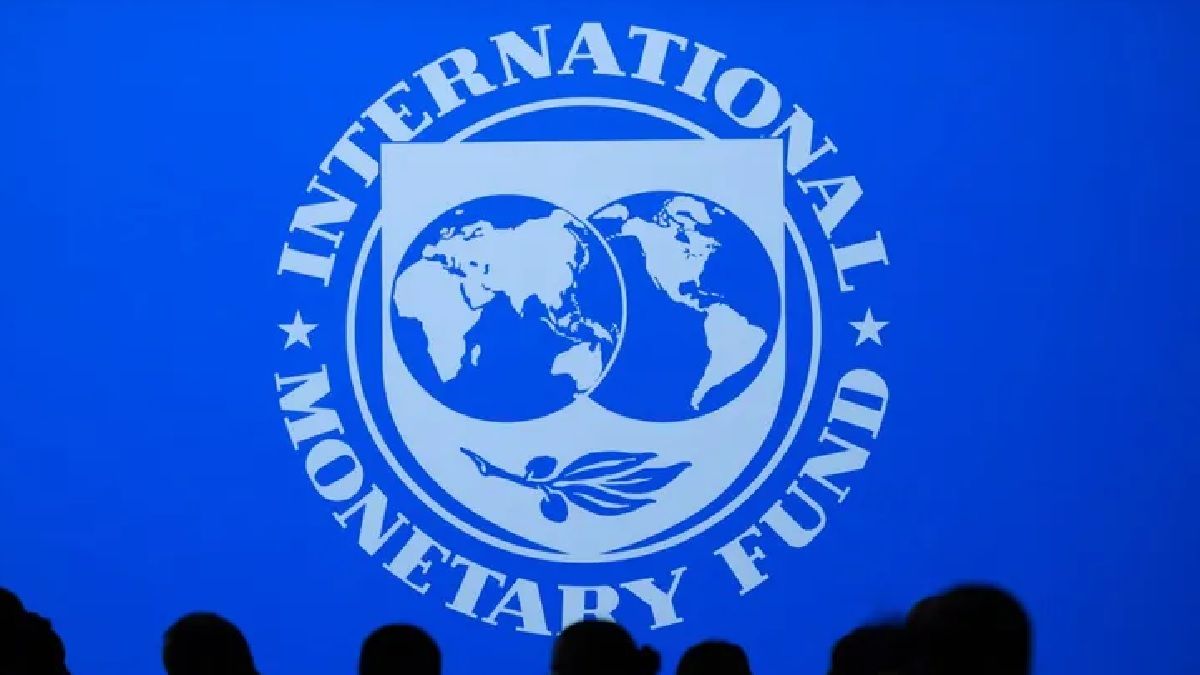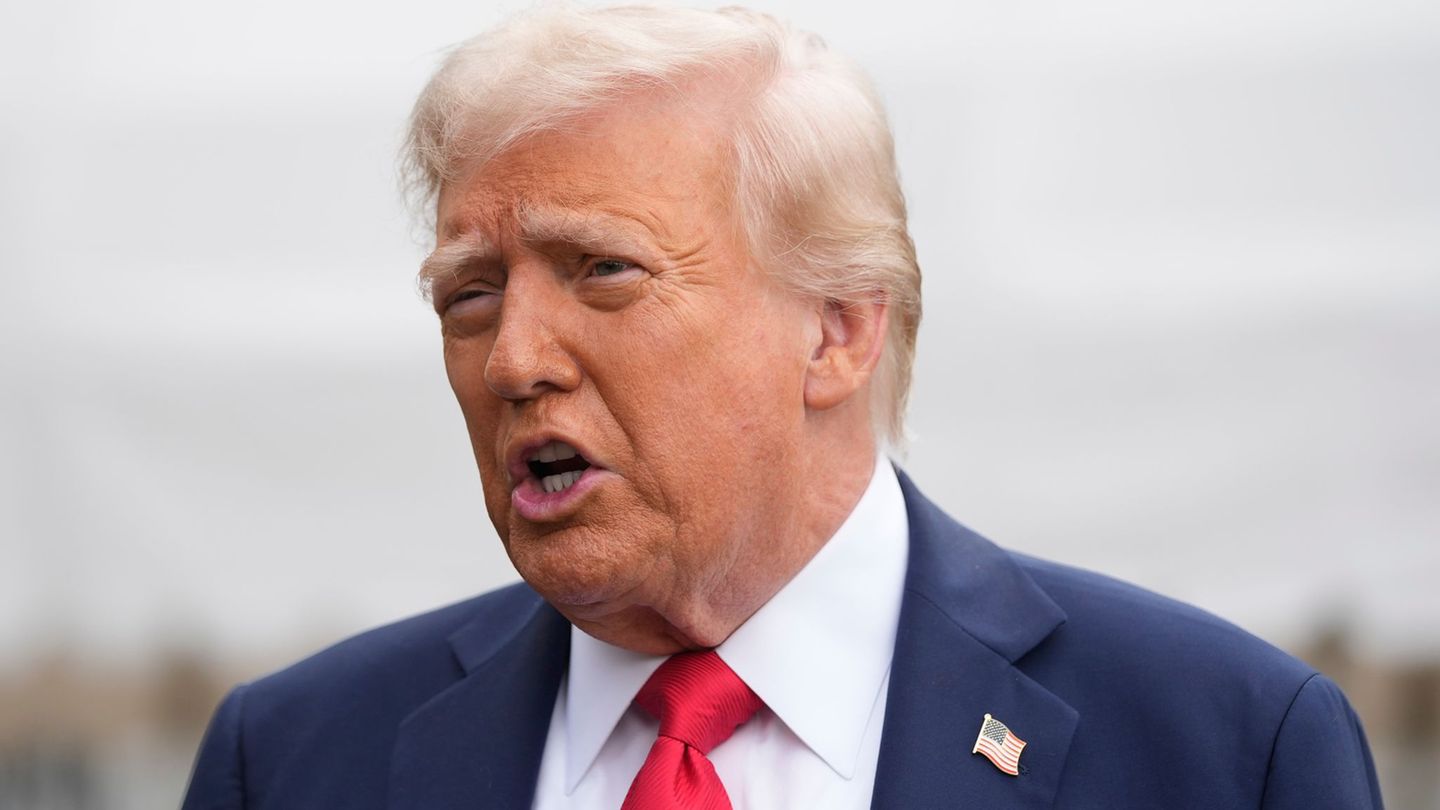After peaking at 10% in mid-2022, headline inflation in the main Latin American economies has slowed to 7% in March. But this decline is mainly due to the decline in commodity prices from their peak levels.
Meanwhile, progress in reducing core inflation—which excludes food and energy— “seems to have stalled.” They considered labor demand to be very strong, with employment holding firm above pre-pandemic levels. At the same time, output is at or above its potential level, and near-term inflation expectations are above the target ranges set by central banks.
“Strong domestic demand, rapidly rising wages and widespread price pressures suggest the risk that inflation will remain at unacceptably high levels in the region”as alerted.
After pointing out that restoring price stability is essential to have a healthy economy and protect the most vulnerable groups, they considered that “in the current situation, this means slow down domestic demand”. They added that “the policy objective now should be to slow down demand to bring it in line with potential output. This inevitably requires chill job market”.
TABLE 1 FRANCO.jpg
Rate
Adler and Chalk considered that, given that inflationary pressures are proving to be persistent, central banks will have to hold their ground and “interest rates will probably need to stay high for much of this year, and even next in some cases.” This will help bring inflation back towards the target level by the end of 2024 or early 2025.
To help central banks in their fight against inflation, they argued that fiscal policy could take a greater role through a more countercyclical stance this year.
Still, managers acknowledged that “rebalancing the policy set will not be an easy task.” They specified that the demand for social spending is high in the region, and there are serious distribution and social equity issues to be faced.
In this regard, they considered that “part of the solution should consist of enact tax policies that require those who have the most to contribute their fair share”.
But, at the same time, they warned that “the authorities will also have to generate savings, without cutting the main social programs or spending on health, education and public infrastructure.”
They stressed that “there is a lot of room to reduce inefficiencies in public spending, and people will become more inclined to the idea of more prudent public finances if this leads to greater efficiency in state services.”
They concluded by noting that “Good management of public resources could also help repair trust in government, which has been so eroded in many countries in recent years.”
TABLE 2 FRANCO.jpg

Commitment
For her part, the director of the International Monetary Fund, Kristalina Georgievagave a press conference in Washington this Thursday within the framework of the Spring Meetings of the IMF and the World Bank where highlighted the efforts of the Argentine economic team to meet the goals of the program, but stressed the need to continue with the implementation of the program agreed with the agency.
“Let me acknowledge that, in the second half of last year, the Argentine authorities have directed efforts to develop prudent management and meet the goals of the program,” Georgieva pointed out, while recalling that “on March 31 our Executive Board completed the fourth review of the program thanks to what the country has done.”
He also stressed that “Argentina was affected by a severe drought that has undermined the performance of the economy and is significantly harming the country’s population” and? “It has complicated the job of politicians”.
For this reason, Georgieva explained that the agency has analyzed the implications of this shock and that they have “partially accommodated themselves to the modification of the net international reserve accumulation target.” “We know that we have the government’s commitment to continue refining policies in light of the conditions in which they find themselves”he added.
Finally, he stressed that the success of the program “relies on implementation, and implementation will continue to matter even in these very challenging circumstances”.
In this sense, the Fund remains firm regarding the need to meet the fiscal deficit goal of 1.9% for the year, according to news from Washington. Analysts point out that it is a target “very challenging” in light of the strong impact of the drought that the Fund itself acknowledges.
According to estimates from the Rosario Stock Exchange, the drought would have an impact of 3 points on GDP and the Treasury will lose collecting the equivalent of 1% of GDP due to lower withholdings. The Fund recognized part of the problem derived from the unfavorable climatic conditions by making the reserve goal that the country must accumulate more flexible, given the loss of some 20,000 million dollars in exports. But so far he has not shown signs of accepting a change in the fiscal goal.
Financial support
This Wednesday the Minister of Economy, Sergio Massa held a meeting in the Dominican Republic with Wendy Sherman Assistant Secretary of State of the United States and commissioned, by the President Joe Biden, to continue the relationship with Argentina. The official reiterated, as she was able to know Ambithe support from the US administration to obtain financing from multilateral credit organizations.
In this sense, and within the framework of Massa’s trip to Washington to participate in the Spring meetings of the World Bank and the International Monetary Fund, the Inter-American Development Bank approved a loan of USD 200 million that will finance improvements in the Argentine health system. This is the first individual operation of a conditional line of credit for investment projects (CCLIP) of $600 million.
In this line, through the credit obtained, actions will be financed to reduce premature mortality and close the gaps in access to health services between jurisdictions of the country. To this end, the initiative seeks to increase effective access to diagnostic and care services by the population that is exclusively covered by the public health system, estimated at 20.5 million people in 2022.
The initiative will also increase screening for cervical cancer in women with exclusive public coverage and increase the vaccination rate for Human Papilloma Virus (HPV) for 11-year-old girls and boys. Another objective is to increase the identification and follow-up of people with high blood pressure and with hyperglycemia or diabetes.
In addition, the credit obtained by Argentina will support the implementation of the Community Mental Health Model and will increase the number of mental health medications delivered to health facilities.
Source: Ambito




